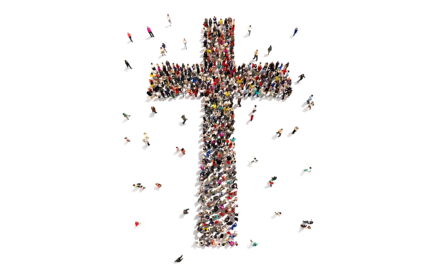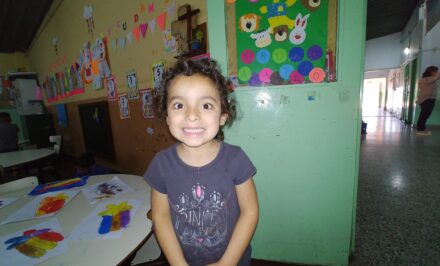 org. Every part of the Church, and many others outside of her – believers or non-believers – have received Pope Francis` clear and hope-filled words. They are also words that motivate us to assume the responsibility we all have to build a world in accordance to the Will of God, in the strength of the Spirit and through the way of Christ. Cardinals and bishops, priests, men and women religious, novices and seminarians, families, the youth and elderly, communities and institutes have received this challenge to go out “onto the street” to take – not a utopian hope – but concrete deeds in living evangelization projects to all men and women wherever they may be. And if they are on the “outskirts” then we have to go there, with all the risks and dangers it may include. He repeats to us constantly: I prefer an injured church, because she goes out to serve, to a Church that is sick because of her self-absorption. Testimony to this can be found in the section of Schoenstatt.org where on a weekly basis texts are selected which motivate us on our own pilgrimage toward the 2014 Jubilee. Undoubtedly, because we are the Church, these words are also directed to us. How happy must our Father not be with this missionary impetus which is given to us from the very heart of the Church! (Fr. José María García)
org. Every part of the Church, and many others outside of her – believers or non-believers – have received Pope Francis` clear and hope-filled words. They are also words that motivate us to assume the responsibility we all have to build a world in accordance to the Will of God, in the strength of the Spirit and through the way of Christ. Cardinals and bishops, priests, men and women religious, novices and seminarians, families, the youth and elderly, communities and institutes have received this challenge to go out “onto the street” to take – not a utopian hope – but concrete deeds in living evangelization projects to all men and women wherever they may be. And if they are on the “outskirts” then we have to go there, with all the risks and dangers it may include. He repeats to us constantly: I prefer an injured church, because she goes out to serve, to a Church that is sick because of her self-absorption. Testimony to this can be found in the section of Schoenstatt.org where on a weekly basis texts are selected which motivate us on our own pilgrimage toward the 2014 Jubilee. Undoubtedly, because we are the Church, these words are also directed to us. How happy must our Father not be with this missionary impetus which is given to us from the very heart of the Church! (Fr. José María García)
![]()
WEEK 8/2014

I greet all the sick and those who suffer. The Crucified Christ is with you: Draw near to Him.
There is no such thing as an idle Christian: a Christian who does nothing is sick, he suffers from some illness in his Christian identity, he has some illness within that identity. A Christian is a disciple who walks, who moves. We heard it in the Psalm, in the Lord’s parting words: ‘Go into all the world and preach the Gospel.’ Go. Move. The first attitude of Christian identity is to move on, and move forward in the midst of difficulties, to move beyond the difficulties…. The Christian, therefore, moves and if there are difficulties, he goes beyond these difficulties to announce that the Kingdom of God is near.
Santa Marta, 14.2
The Christian should always remain a lamb. The Christian is a lamb and should maintain this identity. The Lord sends us as lambs among the wolves. But someone could use force against them. We think of David when he had to fight the Philistine: they wanted him to wear Saul’s armour but he could not move. But this was not him, not the humble, simple David. In the end, he took only his slingshot and won the battle. Like lambs…do not become wolves. Because sometimes, temptation makes us think: “This is hard, these wolves are clever, but I’ll be cleverer than them, no?” Lamb. Not a fool, but a lamb. A lamb. With Christian astuteness, but always a lamb. Because if you are a lamb, He will defend you. But if you feel that you are as strong as a wolf, then He will not defend you, He will leave you alone and the wolves will viciously eat you. Be like a lamb.
Santa Marta 14.2
The demeanor of the Christian is joy. Christians are people who exult because they know the Lord and take the Lord with them wherever they go. We cannot walk as Christians without joy, we cannot walk as lambs without joy. Even in the midst of problems, even in the difficulties, even in our mistakes and sins there is the joy that Jesus forgives and always helps us. The Gospel, therefore, should spread, taken by all these lambs sent by the Lord, who walk with joy. Christians who are always sad, who always live this way, complaining about everything, sad, do not do God or the Church any favours…this is not the demeanor of the Christian. Saint Augustin tells the Christians: Sing and walk onward with joy. This is the demeanour of the Christian. Announce the Gospel with joy. And the Lord will do everything. In contrast, excessive sadness, excessive sadness and bitterness causes us to live Christianity without Christ: the empty Cross for those Christians who are crying at the tomb, like Mary Magdalene, but also do not experience the joy of meeting the Resurrected Lord.
Santa Marta, 14.2.2014
We must always bear in mind that the Eucharist is not something we make; it not our own commemoration of what Jesus said and did. No. It is precisely an act of Christ! It is Christ who acts there, who is on the altar. It is a gift of Christ, who makes himself present and gathers us around him, to nourish us with his Word and with his life. This means that the mission and the very identity of the Church flows from there, from the Eucharist, and from there always takes its shape. A celebration may be flawless on the exterior, very beautiful, but if it does not lead us to encounter Jesus Christ, it is unlikely to bear any kind of nourishment to our heart and our life. Through the Eucharist, however, Christ wishes to enter into our life and permeate it with his grace, so that in every Christian community there may be coherence between liturgy and life. The heart fills with trust and hope by pondering on Jesus’ words recounted in the Gospel: “he who eats my flesh and drinks my blood has eternal life, and I will raise him up at the last day” (Jn 6:54). Let us live the Eucharist with the spirit of faith, of prayer, of forgiveness, of repentance, of communal joy, of concern for the needy and for the needs of so many brothers and sisters, in the certainty that the Lord will fulfil what he has promised us: eternal life.
General Audience, 12.2.
How patient our people are: When we go into parishes and meet people who are suffering, who have problems, who have a disabled child, are suffering from an illness, but who carry on with their lives with patience. They do not ask for signs because they know how to read the signs of the times. And these people, our people, in our parishes, in our institutions – many people – they are the ones who carry the Church forward, with their everyday sanctity, each day. ‘My brothers and sisters, consider it pure joy whenever you face trials of many kinds, because you know that the testing of your faith produces perseverance. Let perseverance finish its work so that you may be mature and complete, not lacking anything’ (James 1:2-4). May the Lord give us all patience, joyful patience, patience of work, of peace, give us the patience of God, which He has, and give us patience of our faithful people who are so exemplary.
Santa Marta 17.2.2014
Words can also kill, not so? When we say that someone has a tongue like a serpent, what does this mean? That that person’s words kill. Therefore, not only should we not kill, but we should also not pour out the venom of anger on another person and attack him with slander. Or speak badly of him because there is already enough gossip: gossip can also kill, because it ruins the reputation of others. It is not nice to gossip. In the beginning it may seem like something pleasant, entertaining even, as if it were a sweet. But in the end, it fills the heart with bitterness, and also poisons us. Shall I tell you the truth? I am convinced that if each of us made a point to avoid, in time that person would become a saint! It is a beautiful path. We want to be saints, yes or no? We want to chat normally, yes or no? Then we are in agreement: no more gossip!
Angelus, 16.2.2014
It becomes very clear that Jesus does not attach importance only to disciplined observances and external behaviours. He goes to the root of the law, focusing especially on the intention and on the human heart, the origin of our good and bad deed. Good and honest behaviour does not depend only on legal norms, instead there is also need for a deeper motivation, the expression of a hidden wisdom, God’s wisdom, that we can receive grace from the Holy Spirit. We, through faith in Christ, can open ourselves to the action of the Spirit that allows us to live divine love. In light of this teaching, all of the commandments gain their full meaning if they are seen a demand of love, and all of them can be summed in the great commandment: Love God with all your heart and your neighbour as yourself.
Angelus, 12.2.2014













